This article was medically reviewed by Cristian Macau, DDS and by wikiHow staff writer, Hannah Madden. Dr. Macau is an oral surgeon, periodontist, and aesthetician at Favero Dental Clinic in London. He received his DDS from Carol Davila University of Medicine in 2015.
There are 8 references cited in this article, which can be found at the bottom of the page.
wikiHow marks an article as reader-approved once it receives enough positive feedback. In this case, 84% of readers who voted found the article helpful, earning it our reader-approved status.
This article has been viewed 453,235 times.
Whether you’re out traveling or you’re stuck at home, running out of toothpaste can be a huge bummer. Fortunately, there are a few ways you can “brush” your teeth even if you don’t have the essentials nearby. Take a look at this list to learn how you can keep your teeth clean for a few days until you can go out to grab some toothpaste again.
Steps
Expert Q&A
-
QuestionShould I hold my nose while brushing?
 Cristian Macau, DDSDr. Macau is an oral surgeon, periodontist, and aesthetician at Favero Dental Clinic in London. He received his DDS from Carol Davila University of Medicine in 2015.
Cristian Macau, DDSDr. Macau is an oral surgeon, periodontist, and aesthetician at Favero Dental Clinic in London. He received his DDS from Carol Davila University of Medicine in 2015.
Doctor of Dental Surgery Holding your nose while brushing is not necessary. Having a clear view in the mirror and being able to feel every area of your teeth and gums while brushing it is more important. If you don't like the taste of your toothpaste, try looking for a different flavor or making your own, adding flavors you enjoy.
Holding your nose while brushing is not necessary. Having a clear view in the mirror and being able to feel every area of your teeth and gums while brushing it is more important. If you don't like the taste of your toothpaste, try looking for a different flavor or making your own, adding flavors you enjoy. -
QuestionIt's good to brush my teeth with coconut oil?
 Cristian Macau, DDSDr. Macau is an oral surgeon, periodontist, and aesthetician at Favero Dental Clinic in London. He received his DDS from Carol Davila University of Medicine in 2015.
Cristian Macau, DDSDr. Macau is an oral surgeon, periodontist, and aesthetician at Favero Dental Clinic in London. He received his DDS from Carol Davila University of Medicine in 2015.
Doctor of Dental Surgery Coconut oil is a natural ingredient which has many advantages when it is used as a toothpaste. Besides an antibacterial and whitening effect, it provides a lasting protection of enamel. You should though avoid using it if you are allergic to coconut.
Coconut oil is a natural ingredient which has many advantages when it is used as a toothpaste. Besides an antibacterial and whitening effect, it provides a lasting protection of enamel. You should though avoid using it if you are allergic to coconut.
References
- ↑ https://www.colgate.com/en-us/oral-health/brushing-and-flossing/hacks-forget-toothpaste
- ↑ https://jada.ada.org/article/S0002-8177(17)30822-X/fulltext
- ↑ https://www.smilepointdentalcare.com/what-can-i-use-instead-of-toothpaste/
- ↑ https://www.padentalimplants.com/how-to-clean-teeth-without-a-toothbrush/
- ↑ https://www.padentalimplants.com/how-to-clean-teeth-without-a-toothbrush/
- ↑ https://www.mouthhealthy.org/en/az-topics/w/water-flossers
- ↑ https://www.ada.org/en/member-center/oral-health-topics/chewing-gum
- ↑ https://www.urmc.rochester.edu/encyclopedia/content.aspx?contenttypeid=1&contentid=4062
- ↑ https://www.urmc.rochester.edu/encyclopedia/content.aspx?contenttypeid=1&contentid=4062
About This Article
If you need to brush your teeth but you don’t have any toothpaste, try brushing with items you find around the house instead. For instance, if you have sea salt, you could dip your wet toothbrush into 1/2 teaspoon of sea salt, then gently brush your teeth. Sea salt has antibacterial properties and can neutralize acids that cause tooth decay, but it can also be very abrasive, so don’t use it on your teeth regularly. Other household ingredients you could use include baking soda, natural soap, and coconut oil. Keep reading to learn advice from our dental reviewer on how to make your own toothpaste or tooth powder!
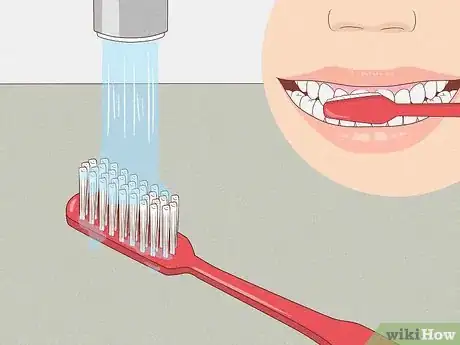
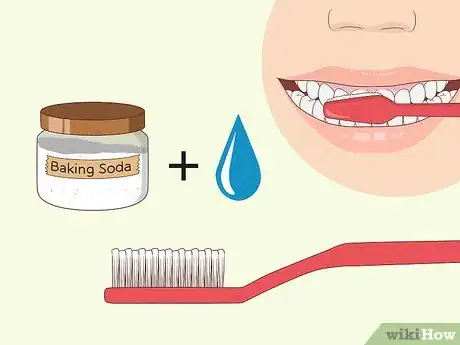
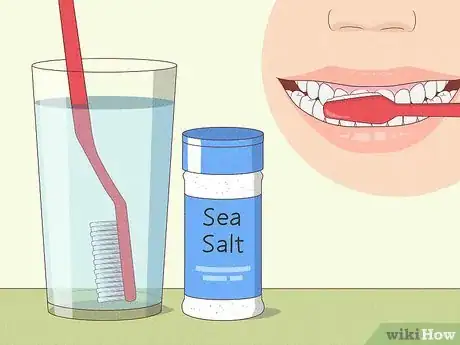
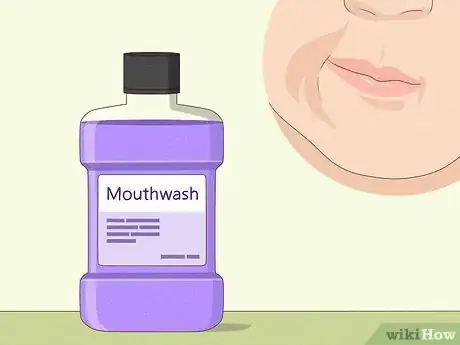
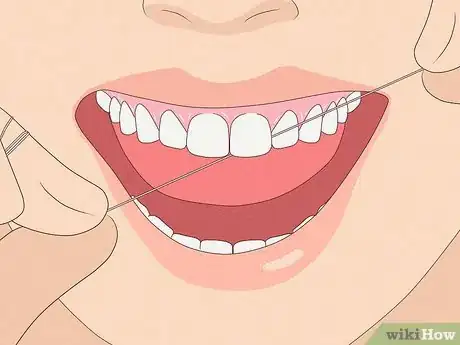
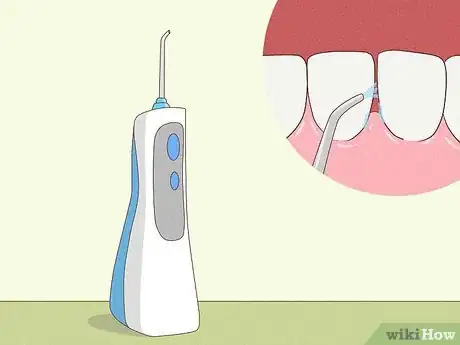
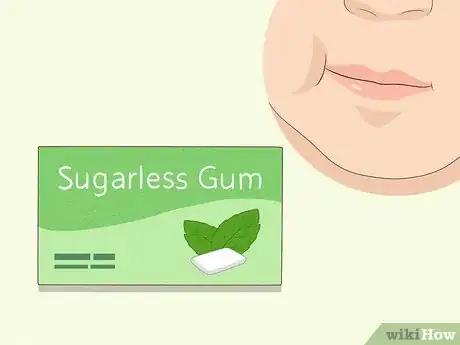
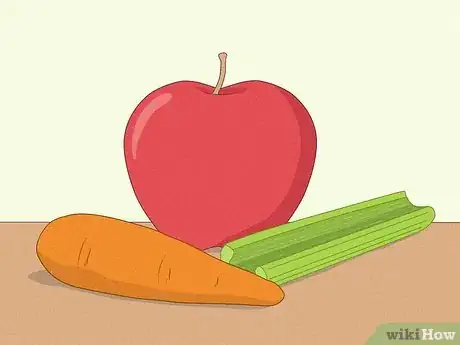
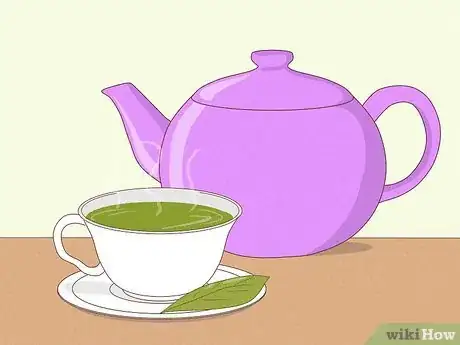
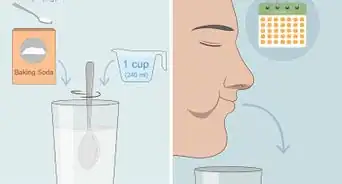
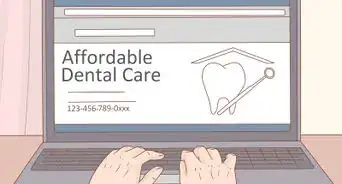
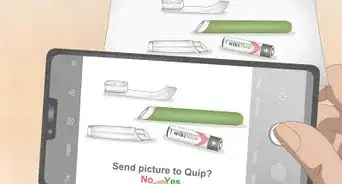
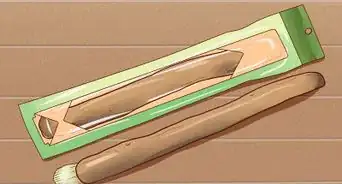
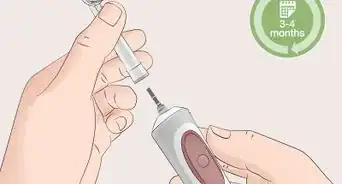
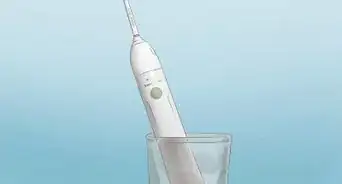
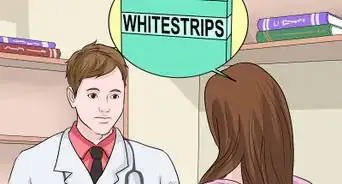
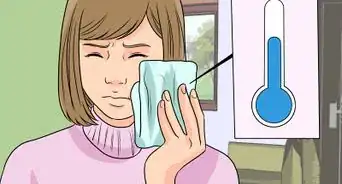
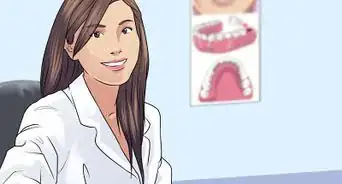

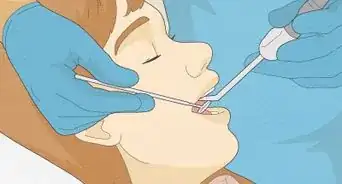
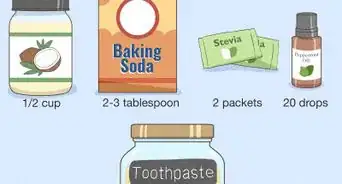
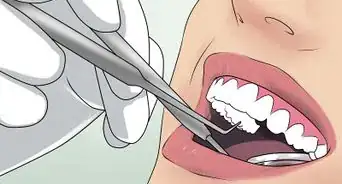











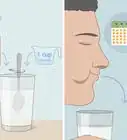
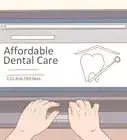
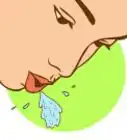
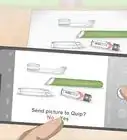



































Medical Disclaimer
The content of this article is not intended to be a substitute for professional medical advice, examination, diagnosis, or treatment. You should always contact your doctor or other qualified healthcare professional before starting, changing, or stopping any kind of health treatment.
Read More...